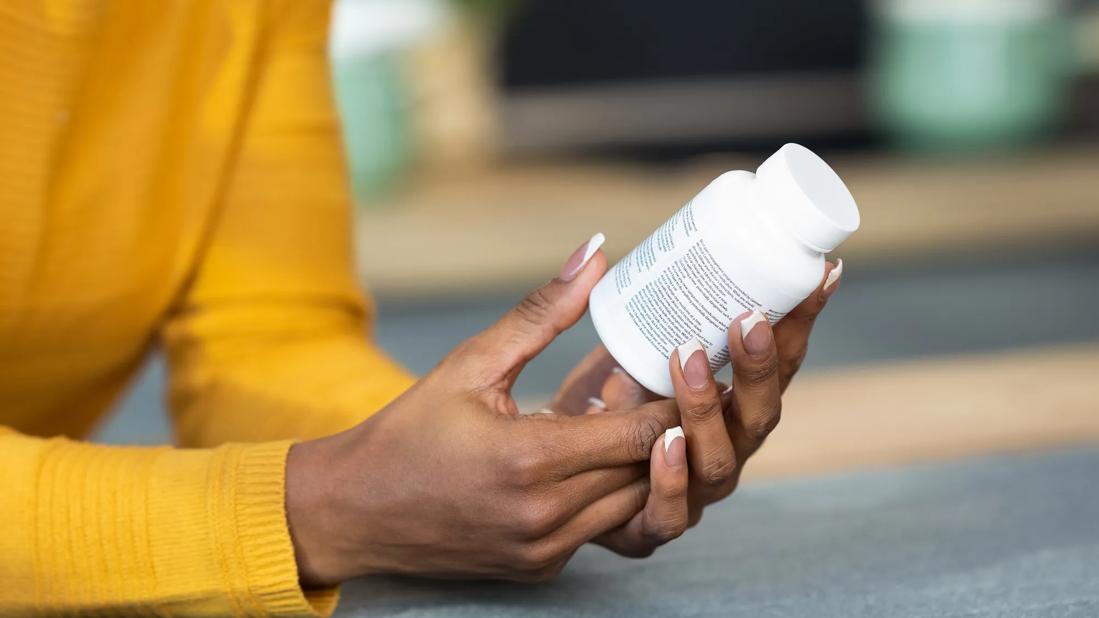One is a supplement, the other is a prescription medication — both may be useful in managing Type 2 diabetes, but one has more research

Image content: This image is available to view online.
View image online (https://assets.clevelandclinic.org/transform/fdfc1616-6e98-4928-bf84-7304a44eeff7/examine-pill-bottle-1465215170)
Person examining bottle of pills
As berberine gains attention as a supplement that can help with a variety of conditions such as obesity and PCOS, you may have heard that it works just as well or even better than metformin to treat Type 2 diabetes.
Advertisement
Cleveland Clinic is a non-profit academic medical center. Advertising on our site helps support our mission. We do not endorse non-Cleveland Clinic products or services. Policy
Functional medicine specialist Layth Tumah, MD, explains the differences between the two.
Berberine is a supplement that’s commonly used in traditional Chinese medicine (TCM). As a supplement, it isn’t regulated by the U.S. Food and Drug Administration (FDA). And it isn’t as well-researched as conventional medication like metformin in terms of its long-term use, safety and established dose.
“Metformin is an FDA-approved medication primarily used as a first-line treatment for Type 2 diabetes,” clarifies Dr. Tumah. “It activates a pathway known as AMP-activated protein kinase (AMPK). AMPK decreases hepatic glucose production, increases insulin sensitivity and enhances peripheral glucose uptake.”
While more research is still needed to understand how berberine may work to help manage diabetes, Dr. Tumah says it seems to work along the same AMPK pathway but in a different way. There’s also some evidence that berberine may help lower lipid levels and other metabolic markers.
This prescription medication may help:
“There’s a long-term history of studies that back the use of metformin, with established treatment dose, mechanism of action, safety and side effect profile,” shares Dr. Tumah.
Advertisement
Metformin side effects may include mild gastrointestinal side effects, like:
Other common side effects include:
It’s rare, but one severe side effect of metformin is lactic acidosis. This requires immediate medical treatment. A few people also experience hypoglycemia (low blood sugar).
Dr. Tumah says you can reduce your chances of side effects by taking metformin with food or taking the extended-release form. It may also be helpful to start at a lower dose and increase over time.
While more research is needed to fully understand the benefits of this popular supplement, it may help:
Berberine side effects may include:
Dr. Tumah recommends taking berberine before meals and says that, like metformin, it may be helpful to start with a lower dose if you experience side effects.
Dr. Tumah says it depends on what you’re using it for. When it comes to treating diabetes, he states that metformin is the clear winner, as there’s plenty of research to support how it works. Plus, healthcare providers know the right dosage to prescribe and understand its side effects.
“That being said, using berberine may have some potential benefits on multiple conditions such as obesity and cardiovascular health,” notes Dr. Tumah, who stresses the importance of talking to your healthcare provider before starting any supplement.
“But we need to remember that it’s a supplement,” he continues. “We need to have a realistic expectation that it’s not as effective as conventional medication like metformin for managing blood sugar. Berberine shows promise on multiple metabolic markers, which makes its potential benefits go beyond blood sugar regulation, especially if combined with lifestyle interventions.”
Advertisement

Sign up for our Health Essentials emails for expert guidance on nutrition, fitness, sleep, skin care and more.
Learn more about our editorial process.
Advertisement
If you have diabetes, working out soon after eating can help lower your blood sugar
Focus on eating more whole grains, lean proteins, fruits and vegetables, and fewer processed foods and saturated fats
This approach is all about eating foods that don’t spike your blood sugar quickly
You can use this index to help identify which foods can cause wild swings in your blood sugar
Diet adjustments and exercise can help, as can asking your doctor about medication changes
Nausea, diarrhea and bloating may be common at first, but more serious signs like dizziness or muscle pain should be addressed immediately
Exercising more, eating healthier and managing weight can significantly improve insulin sensitivity
These simple sugars give us energy, but they can also raise blood sugar levels
Prioritize your health by managing stress, strengthening your social connections and getting quality sleep
Bolsters, blankets, pillows and blocks can offer extra support, stability and comfort
Allergies, postnasal drip, asthma or reflux could be to blame for a cough that won’t quit